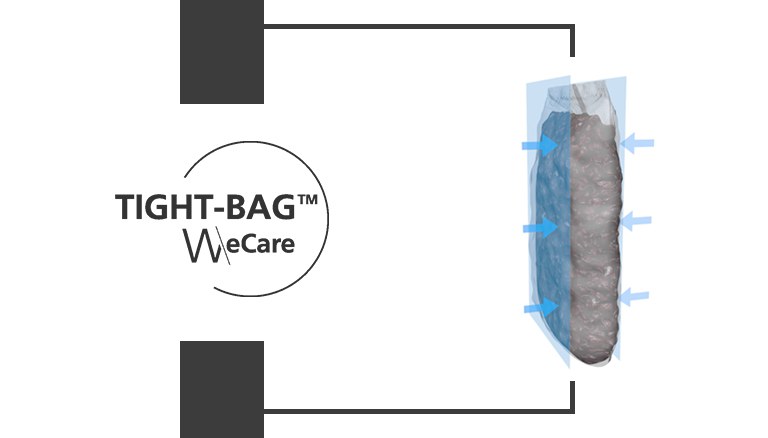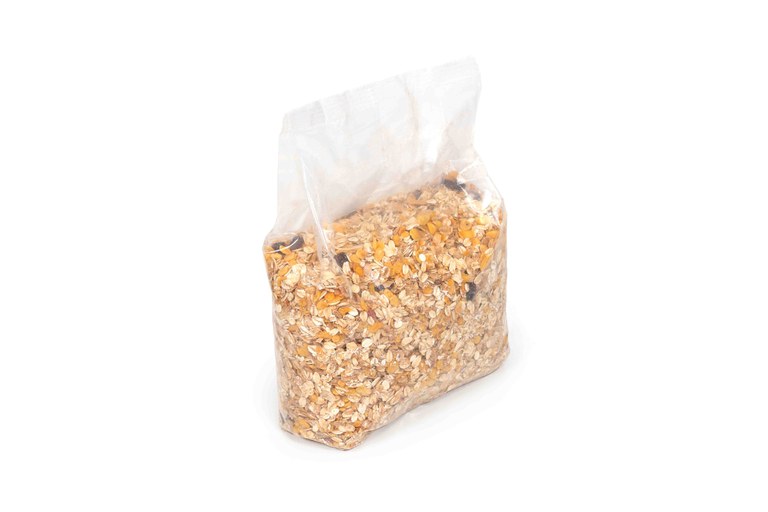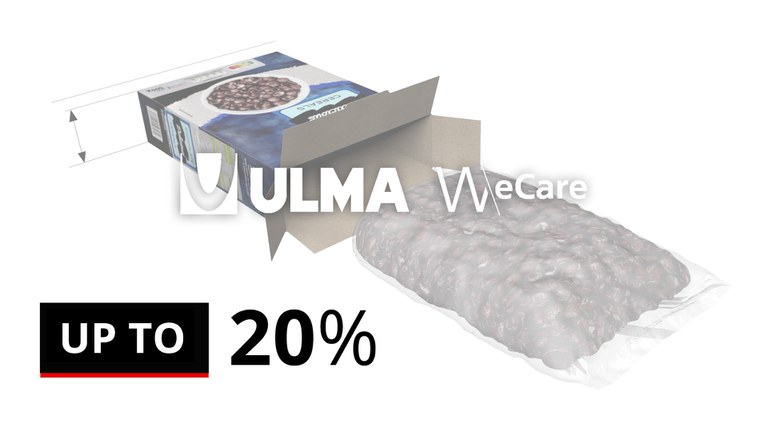Reduce cereal box sizes by 20% with ULMA Packaging's innovative sustainable Tight-Bag™ technology

As part of its drive for innovation, ULMA Packaging continues to develop its range of products to meet the needs of its customers. In a ground-breaking initiative that combines logistics efficiency and sustainability, ULMA Packaging has implemented a solution that reduces the size of cereal bags by up to 20% while keeping the same amount of product inside.
ULMA Tight-Bag™ technology: helps to optimise bag size
Tight-Bag™ technology is an ingenious system that forms a bag in which the air is extracted without making any perforations. The amount of air being extracted can be set on the operator's control screen, allowing the bag size to be adjusted to fit the product being packaged.
So, for cereals, the size of the bag is reduced by up to 20% while keeping the same amount of product inside, resulting in a number of benefits:
- Less product movement inside the packaging, thus minimising product damage or breakage
- More uniform mixtures

Aim: To reduce the cereal box size
Boxes, which are essential for presenting and preserving cereals, play a crucial role in both the marketing and transportation of products. The decision to reduce their size was driven by our ongoing pursuit of more sustainable and efficient supply chain solutions.
Additionally, the smaller size has no negative impact on the on-shelf display. The height and width of the boxes can remain the same, as only their depth is changed.

Cuts logistical costs and reduces waste
The reduction in box size results in a significant improvement in logistical efficiency. In the space previously occupied by 10 boxes, it is now possible to transport 2 additional boxes, which means a 20% increase in the carrying capacity of each transport box.
This innovation not only optimises space during transportation, but also has a direct impact on operational costs. The resulting savings in logistical costs will be crucial for the profitability of the cereal industry, while bolstering its commitment to more sustainable practices.
In addition to the financial benefits, reducing the size of the boxes helps to reduce waste and minimise the environmental impact. This shift reflects the industry's growing awareness of its environmental responsibility, bringing it in line with the expectations of consumers who are increasingly committed to sustainability.
All in all, the 20% reduction in the size of cereal boxes marks an important milestone in the history of the industry, proving that sustainable innovation and logistical efficiency can be combined to benefit both business and the environment.


